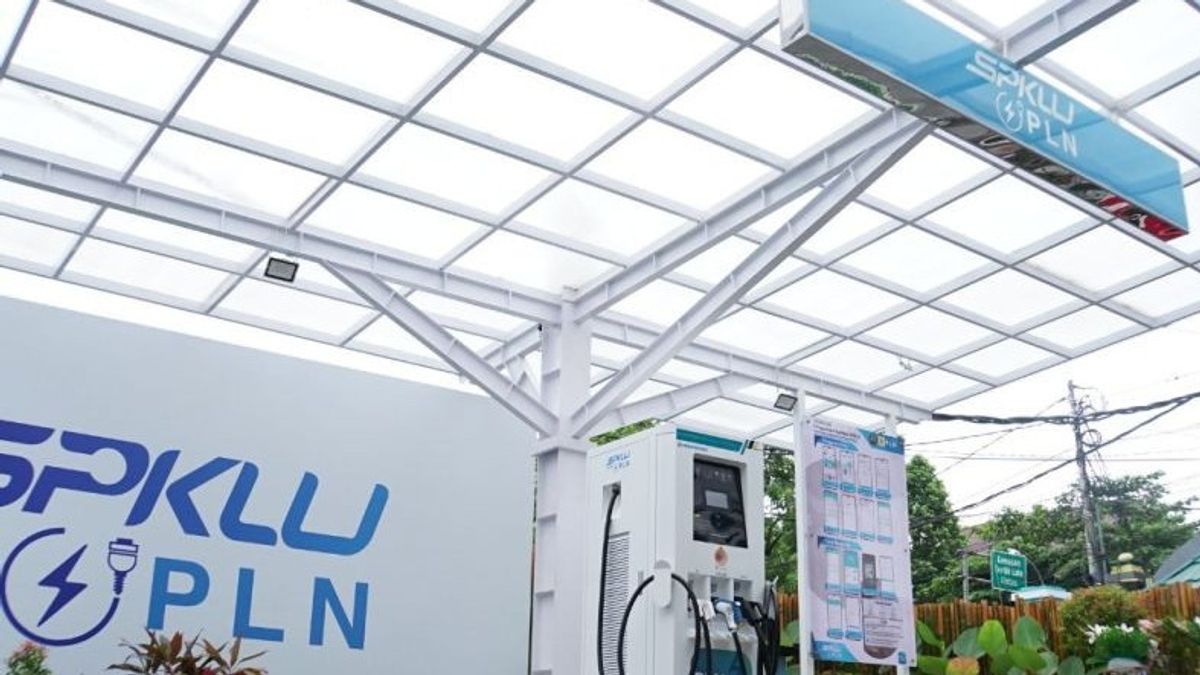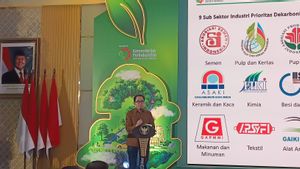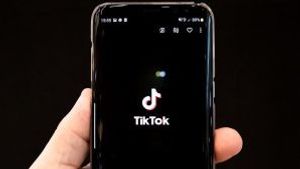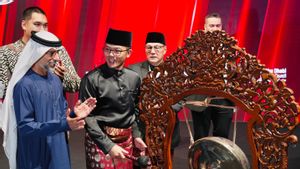JAKARTA - PT PLN (Persero) is increasingly serious in supporting the creation of an electric vehicle ecosystem in the country. As of February 23, 2022, as many as 104 units of public electric vehicle charging stations (SPKLU) have operated and are ready to serve electric vehicle users in 38 cities.
Executive Vice President of Corporate Communications and CSR of PLN Agung Murdifi said PLN would continue to add SPKLU operations to expand the range of electric vehicle energy charging facilities. This year, the company will add 40 SPKLU units in a number of cities.
"The addition of the SPKLU is PLN's effort to improve services by providing convenience for electric vehicle users and to attract public interest in using electric vehicles," Agung said in his statement, Thursday, February 24.
In addition to adding 40 SPKLU this year, PLN will also provide 44 units of Ultrafast EV Charger SPKLU facilities and 100 home charging units to support the implementation of the G20 Summit in Bali, which is planned to start operating in August 2022.
"Currently, there are 5 SPKLU units that are already operating, as well as 16 SPKLU units of Medium and Fast Charging types which are in the stage of completion of construction," he said.
Agung said that the addition and expansion of the SPKLU operation must be done so that electric vehicle drivers do not have to worry about their vehicle batteries running out of electrical energy when traveling long distances using electric vehicles.
"Even when electric vehicle users travel from Aceh to Surabaya, there is no need to worry because SPKLU is available everywhere," added Agung.
PLN also opens up opportunities for collaboration with the private sector to accelerate the expansion of SPKLU throughout Indonesia. To make it easier for parties interested in becoming partners in providing SPKLU, PLN has provided a website https://service.pln.co.id/partnership-spklu.
Through this website, later business entities who want to participate in building SPKLU can register through this channel. After the entrepreneurs access, there will be a column to become a partner. Follow the steps and then PLN will immediately follow up.
"We want to make the electric vehicle ecosystem grow. We are open to cooperating with interested entrepreneurs," said Agung.
PLN will also provide PLN's Electricity Supply Business Permit (IUPTL) for business entities that wish to cooperate, prepare electricity supply, as well as support the Charge.IN application in the management of SPKLU. Meanwhile partners can act as providers of electric vehicle charging facilities, land and property providers, as well as providers of SPKLU operations and maintenance.
Agung said that currently PLN has also developed several business models to support this cooperation plan to make it more attractive and effective in supporting the development of the electric vehicle ecosystem.
“So this business is very profitable. We invite business actors to participate in building the SPKLU according to the revenue sharing-based partnership scheme with the sharing economy model," said Agung.
According to Agung, the procurement of SPKLU is a new business niche for the business world. The growing trend of electric vehicles in Indonesia is currently a new business opportunity for all parties. This business opportunity is not only limited to big cities. Agung gave an example that even in the Asmat area, Papua itself, the portion of the use of electric motors even reaches 100 percent.
"However, there is not much charging infrastructure for electric motorbikes there. This can be a new business opportunity for all parties. It is not only limited to big cities but throughout Indonesia," said Agung.
This new business opportunity is proven through the sale of electric cars, in 2020 electric car sales rose 46 percent. This is in contrast to conventional cars whose sales have decreased by 14 percent.
In addition, the research results also show that the interest of the Indonesian people in electric vehicles is considered to be above the average desire of other citizens in the Southeast Asian region. Based on the roadmap compiled by the Ministry of Energy and Mineral Resources, the potential number of electric vehicles in Indonesia in 2030 will reach 2.2 million electric cars and 13 million electric motorcycles with 31,859 SPKLU units.
The number of electric vehicles is expected to reduce fuel imports by around 6 million kilo liters that year. "Seeing this opportunity, PLN invites all parties to take advantage of this business niche," he added.
The English, Chinese, Japanese, Arabic, and French versions are automatically generated by the AI. So there may still be inaccuracies in translating, please always see Indonesian as our main language. (system supported by DigitalSiber.id)













